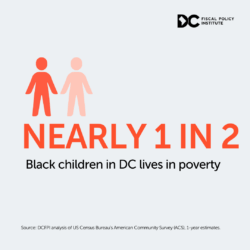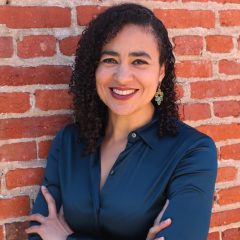Even as DC’s economy grows, it is marked by stark racial inequalities in income, wealth, and poverty. Affording the basics, such as rent, food, and utilities is a daily challenge for many DC residents. This is disproportionately true for Black residents, one in five of whom live in poverty. Income support programs help people make ends meet and boost long-term education and health outcomes for children. By helping residents pay their bills, care for their children and possibly save for a rainy day, DC can help create more stability and a future of shared abundance.
Featured Publications & Resources
Press Release
Press Release: Income Gap Is Wider In DC Than In Any Other Major U.S. City, New Study Finds
By DC Fiscal Policy Institute • July 22, 2004 • Income & Poverty
Report
Income Inequality in the District of Columbia Is Wider Than in Any Major U.S. City
By DC Fiscal Policy Institute • July 22, 2004 • Income & Poverty
Report
Budget Reductions Adopted By the DC Council Would Fall Heavily On Services For Low-Income Residents
By DC Fiscal Policy Institute • May 13, 2004 • Income & Poverty / Revenue & Budget
Latest on this Issue
Testimony
Public Comments in Opposition to Proposed Federal “Public Charge” Rule
By DC Fiscal Policy Institute • January 15, 2026 • Income & Poverty
Blog
DC Tax Credits for Households with Low Incomes Will Reduce Child Poverty by One-Fifth
By Maria Manansala • December 18, 2025 • Income & Poverty / Taxes
Blog
Inequality Remained Extreme in 2024 as DC Backslid on Poverty
By Connor Zielinski • September 15, 2025 • Income & Poverty






